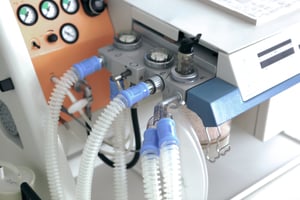Due to the limitations inflicted by the pandemic, Remote Interactive Evaluations (RIEs) are...
7 Questions to Ask When Selecting Your Next External Regulatory Expert
As product developers work to bring new concepts to reality, a regulatory affairs professional should be at hand to advise the team on effective regulatory strategies to get the product past regulatory authorities such as the FDA. However, choosing the right external regulatory affairs expert for your company can be a challenge due to the experience and expertise required to deliver the best possible results.
One effective way to differentiate between advisors is to see how they respond to a range of interview questions, including the following:
Which therapeutic areas have you successfully completed regulatory submissions for?
The potential advisor should clearly state the therapeutic areas they have successfully completed regulatory submissions for and back their answers with relevant evidence. Different types of devices are reviewed by different FDA branches and different FDA reviewers. For example, an orthopedic implant is reviewed by different FDA reviewers than cardiac devices. It is often best to select regulatory experts that have experience in the specific product category being worked on.
If there is a software component involved, you need to know if the potential advisor has experience with submissions that involve software. A software component has different requirements, such as computer system validation documents. The external expert must understand how these components come together for a successful submission.
Do you have experience reviewing product designs or specifications to determine the appropriate regulatory pathway?
The two most common pathways to market for medical devices in the United States are the pre-market approval, also known as the PMA, and pre-market notification, popularly known as the 510(k). Your company may not know which regulatory pathway is ideal, so it is essential that the advisor can determine which pathway best serves your business objectives.
Let the advisor explain how to align the device and its intended use to the appropriate regulatory pathway. Does the advisor speak in generalities (“I prefer x regulatory pathway”) or specifics (“A business with y objectives for a device with such an intended use should use x regulatory pathway”)?
What submission types do you have experience with?
For most medical devices, the appropriate submission type corresponds to the product classification. The standard submission types include "510(k)" or "PMA" (pre-market approval). The 510(k) is generally the pathway for Class II medical devices, and PMA is for Class III. The external expert may have experience with one or both of these submission types. Generally, any regulatory expert that has worked on a PMA has almost certainly worked on 510(k)s before.
However, if you have a Class III medical device, but the external expert only has experience with 510(k)s, they may not be a good fit.
Do you have experience working with a company of our size?
Medical devices are manufactured across a variety of businesses of different scales and sizes. Companies also have a varying number of resources and capital depending on their size. The smallest startup may just be a handful of people relying on contractors for most of their work. Consequently, they may have little to no infrastructure and may not know how regulatory submissions work.
Although medium-sized companies may have workforces of 300 to 400 or more employees and some infrastructure, they may have a limited regulatory bandwidth and thus need extra hands. On the other hand, large companies are generally well resourced and will hire a external regulatory experts for specific needs.
The ideal external regulatory expert should have enough experience to handle the company's particular demands depending on the scale or volume of operations, market size, assets, and available resources. This ensures you will spend less time educating them and more time working to bring the device to the market.
How do you keep up with new regulations and guidelines from various international regulatory authorities?
Medical device industry regulations often change, and it can be a challenge to stay current on all of the changes. If the external expert is not paying close attention, it's easy to miss significant changes that could affect your company. Different countries have different regulatory bodies, and regulatory affairs advisors must know what regulations have changed and where. For example, China, Japan, Australia, the EU, and the UK all have their own regulatory bodies. The advisor should keep close tabs on key happenings in these countries. The right advisor should do at least some of the following:
- Follow relevant blogs and trade publications.
- Sign up for notification services or newsletters
- Monitor regulatory agency websites
- Join industry associations
Besides the above, they should also regularly attend relevant regulatory conferences to stay on top of new industry developments.
What is your process for successfully resolving requests for additional information you receive from regulators?
In today's complex regulatory climate, regulatory issues are bound to emerge, no matter the level of your preparedness. When a submission comes back with questions from FDA, it is in the form of a "request for additional information" letter. You then have 180 days to respond, and if the response is not adequate, the device will not be approved. The right external expert should be adept at dealing with these situations and give examples from prior experience.
How many submissions have you worked on recently, and what was your role?
The potential external regulatory expert should have fair number of regulatory submissions made to regulators in the recent working past. The number of submissions can be indicative of how much and how recently they've worked. You should also probe their answer to know if they were the primary driver or if they just contributed a few sections. Also, find out if the submissions successfully cleared or were approved by the FDA.
While the above questions are by no means exhaustive, the answers you receive will enable you to make an informed decision on your next external regulatory expert.
Find the Ideal External Regulatory Expert
The process you have to go through to bring a medical device to the market is rigorous. Although the steps involved from initial design to release into the market have not changed much, the regulations you must meet to pass each step can change weekly. Notably, your device has to reach the market quickly before your competitors beat you to the game. So, what are your options to win the game in the face of rapidly changing regulatory needs? Consider working with medical device compliance service providers to help you stay ahead.
However, finding the right external regulatory expert with the right specialties can take a lot of time and effort. One way to locate experts quickly is to look at Medpoint's global network of technical experts. For a no-obligation consultation on how to find the right regulatory expert for your needs, contact Medpoint today.



